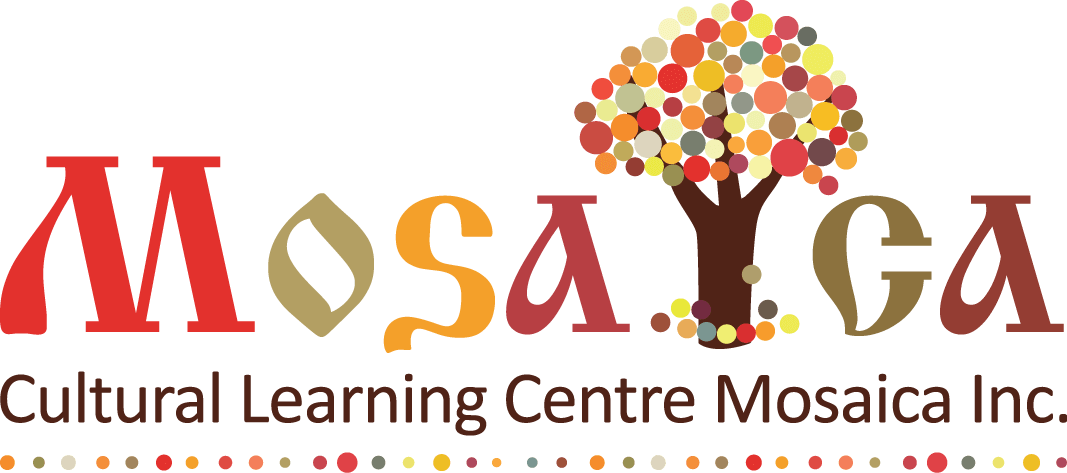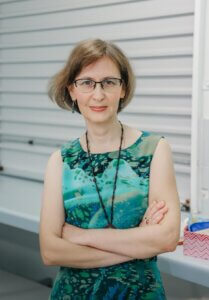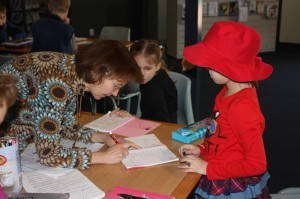

Yulia Lugovskaya
It so happened that I read and re-read all primary school textbooks even before I started school. As well as all workbooks and teacher’s books for them. It was not that had to do, as my mother was a teacher and I had easy access to a bookcase full of textbooks. 😉 In spite of that, I was never bored at school, it was always possible to find challenges, even in class. Letters could hide, words – get together and play games, and as for the numbers – their possibilities had no limits! Any book is full of riddles and adventures, even the most boring manual or an ordinary cook book.
This must have determined my future use of occupation. But it was only in Australia that I managed to become a teacher of Russian for the children. And this is where everything came in handy: 10 years of teaching experience in Russia, the memories of my own school years, the best teaching materials that my mother had carefully preserved from the bygone days of the Soviet era, innovative methods presented in educational literature, and methods of teaching Russian as a second language. And thus we have been travelling in the land of the Russian language for the last five years, and some of my young fellow travellers are experienced pilgrims while others are just starting on their journey. And our luggage grows with every passing week, as there are so many things to learn, think over and remember. Luckily, there is no problem these days to find books that help to make lessons interesting and exciting, rather, there are too many, so it is hard to choose what suits this or that purpose best. But many years of methodological work at a university help to combine and select the most appropriate teaching materials for our children, and to compile our own resource files and work books. And each time I discover new and interesting things in what I have read or learned before, things sometimes forgotten and rediscovered. Our students sometimes like to give us riddles of their own, to which it is not always easy to find answers. 🙂 And of course teaching the Russian language to children who live in a non-Russian speaking country has its specifics, some children speak it at home, and for others it can be their second, and sometimes even third language! So every child needs an individual approach. The most daring grope through the intricate path of the Russian school curriculum with all its rules and exceptions, but even this challenge we overcome with high spirits and adventures. And we have easier paths for those who are not native Russian speakers or who just start to learn it.
The main thing I want to make clear to all my students: learning is exciting, and learning Russian is an exciting and adventurous voyage to our own roots, history and culture!!
[cplw category=”17″ width=”500″ height=”500″ effects=”none” posts_to_show=”-1″ time=”1000″ sort_by=”date” excerpt_length=”50″ thumb_width=”150″ thumb_height=”150″ date_format=”j F Y” display=”title,excerpt,thumb” order=”desc”]


